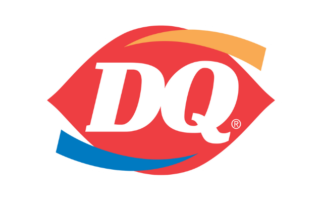Retail electricity markets play an integral role in shaping the energy economy of the United States. Before the formal formation of retail and wholesale electric markets, utility monopolies were in full control of the power supply chain. Access to retail markets today allows customers to participate in various energy programs in an attempt to control costs and become more sustainable. Let’s explore retail electricity markets in more detail below.
What Is A Retail Electricity Market?
A retail electric market consists of utility companies, local power lines, retail energy suppliers, retail energy brokers, energy consultants, energy traders, and ultimately energy consumers. These market participants make up the majority of retail power markets in the U.S.
In regulated states, utility companies are in total control of the retail electric market and dictate certain energy rate tariffs and consumer electricity rates.
In deregulated energy states, retail markets are open to supplier competition. In these markets, energy consumers have the option to purchase electricity from a third-party provider, enroll in demand response programs, and even sell electricity back to the grid.
Retail electricity markets can vary significantly from one location to the next, and even within a state or province. In some places, retail competition is limited to only certain segments of the market, such as large commercial and industrial customers. Elsewhere, retail competition is open to all end-use consumers. In retail markets, there are energy suppliers who purchase and resell energy and energy brokers who advise customers and help them shop supplier rates. Here is a complete list of all deregulated markets.
What Are The Benefits?
The benefits of retail electric choice are well documented. A 2016 study by the free-market think tank The Heartland Institute found that when given a choice, consumers saved an average of 12% on their electric bills. And research conducted by Navigant Consulting in 2017 found that states with retail choice saw $11 billion in savings between 2009 and 2015 thanks to lower wholesale power prices.
Let’s explore the benefits for different market participants in more detail.
Retail Choice Benefits For Consumers
Energy consumers benefit the most from energy choice in retail power markets. Prior to energy deregulation, consumers only had one option – the local utility company. And, while rates were regulated, they were not given the flexibility to control energy expenses.
Some of the major benefits of retail choice for consumers include:
- The ability to fix electricity rates when prices are low
- The option to float certain price components on the energy index market
- The ability to participate in demand response
- The option to match hybrid energy supply products to energy efficiency strategies
Benefits For Energy Companies
Retail energy market expansion benefitted energy companies the most. Since the onset of energy deregulation in the U.S. many new retail electricity suppliers have taken advantage of the emerging markets. Some of the top retail energy suppliers in the nation are generating billions of dollars per year in revenue selling power in retail markets.
In addition, other companies, such as solar developers and distributed energy resource suppliers benefit from open market access. Because of the retail market structure, these companies are easily able to interface with utilities and provide services to end users.
Why Aren’t All States Deregulated?
The main reason for this lack of retail choice is the political influence of incumbent utilities. These utilities often enjoy a monopoly or duopoly in their service areas, and they don’t want to see that change. They use their lobbying power and financial resources to try to block or delay retail choice initiatives at the state level.
But as more and more people demand access to retail choice, it’s becoming harder for utilities to hold on to their monopolies. In 2010, Pennsylvania became the latest state to enact legislation that will open retail electricity markets to retail competition.
Need Help Exploring The Retail Electricity Market?
Our team of energy industry professionals has over 100 years of combined retail energy market experience. We understand the market participants, how the markets work in different parts of the country, and how to take advantage of retail energy for your business. Contact us today to learn more.





